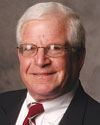...but if interest is expressed, we can and do work with students to determine if there could be a fit in one of our non-U.S. operations.” Tom Haak, corporate director of human resources for Dutch engineer ARCADIS, says international internships are few at the firm. “But for top students with the right profile we are sometimes able to create opportunities,” he says.
Tyler Silverman, a University of Colorado chemical engineering graduate, postponed his graduation in 2008 to qualify for an internship with a Spanish solar technology firm. He now works full-time for the firm as an R&D field engineer. “The benefits are uncountable. I am fully integrated in a developing solar sector working on solar technologies that really only exist in Spain right now,” he says. “And I am working with some incredibly intelligent people here in Spain.”

Partnerships with companies are proving critical for global programs. Last year, the Cockrell School of Engineering at the University of Texas, Austin, added a new one-year course that begins by teaching students in the classroom and, ultimately, lands them on international projects sponsored by corporations. The three-course sequence, dubbed Projects for Underserved Communities, starts with a class on project planning and finishes with a construction focus in the field. “It’s basically taking the concept of Engineers Without Borders a step or two further and providing some mentoring and coaching for these students as they progress,” says James O’Connor, UT professor of construction engineering and project management.
This year, the school partnered with Bechtel Group on a community legacy project associated with a liquefied natural- gas project under way in Angola. A team of students will work with Bechtel to help build a school and recreation center in a community near the project site. Last year, teams of students worked on two other projects sponsored by oil and gas companies in Ghana and in Peru.
O’Connor says the international aspect of the course is part of its appeal. “We’ve offered domestic projects to students and tried to cultivate them, but, invariably, they want to go overseas and have that experience,” he says. “The international dimension is the draw.”

Construction management students also are crossing borders. Skyler Holloway, a sophomore CM major at Arizona State University, is studying at Australia’s Griffith University next year. “Because they have construction and civil engineering programs, I will not need to set back my graduate date at all,” he says.
Gaining international experience doesn’t necessarily have to fit the confines of school curricula. In 2008, the School of Civil and Environmental Engineering at Georgia Tech in Atlanta established the Joe S. Mundy Global Learning Experience Endowment Fund. The $4-million endowment offers students up to $5,000 each for worldwide educational and cultural experiences that increase both the value of the student’s degree and the potential for the student to be a leader in a global community.
Rensselaer’s Gerhardt says study-abroad involvement shows employers early evidence of a potential hire’s initiative and drive. “Firms don’t hire grads because they know a little Korean. It’s because they voluntarily seek out an international experience,” he says. “That’s the kind of person I want working for me.”








